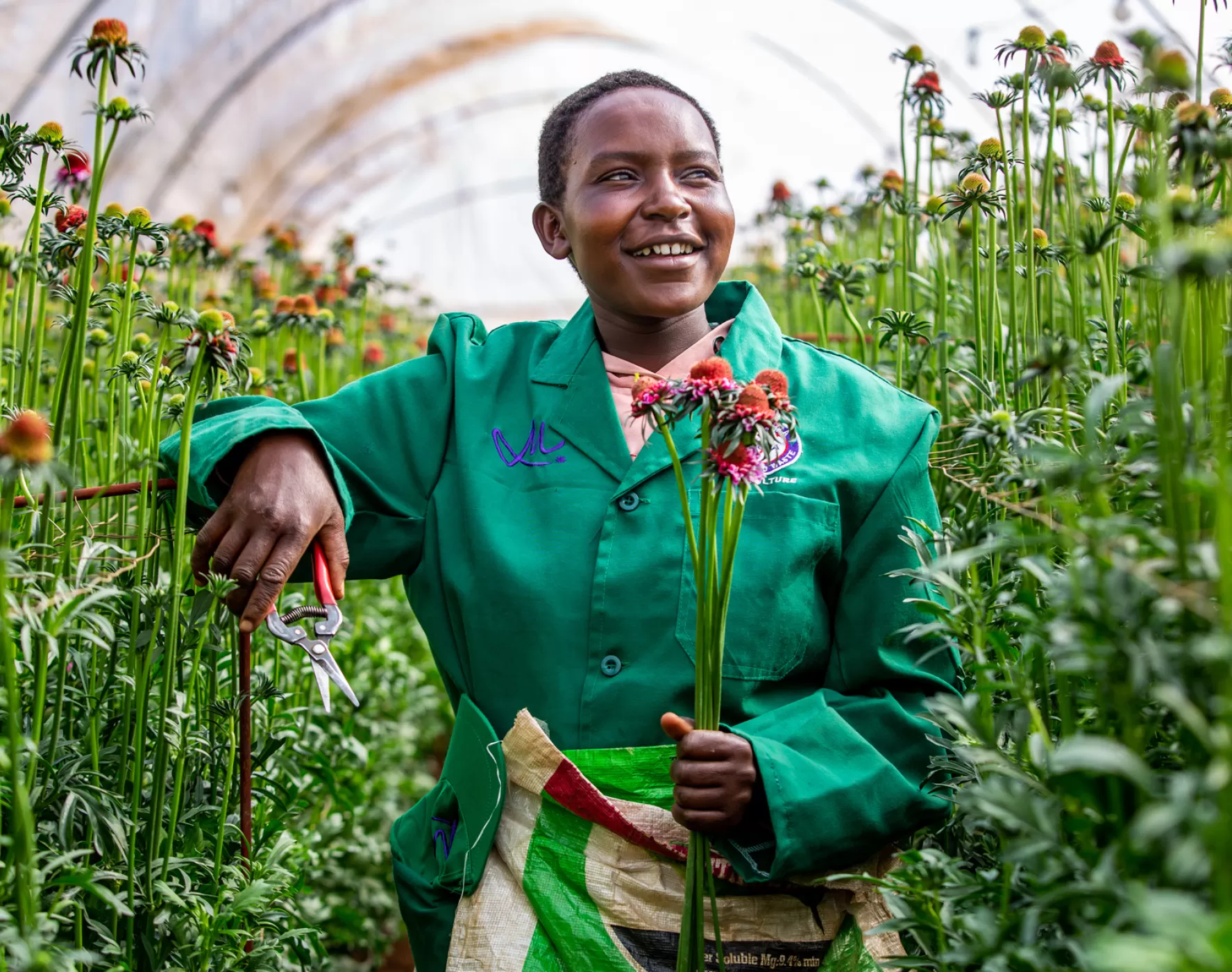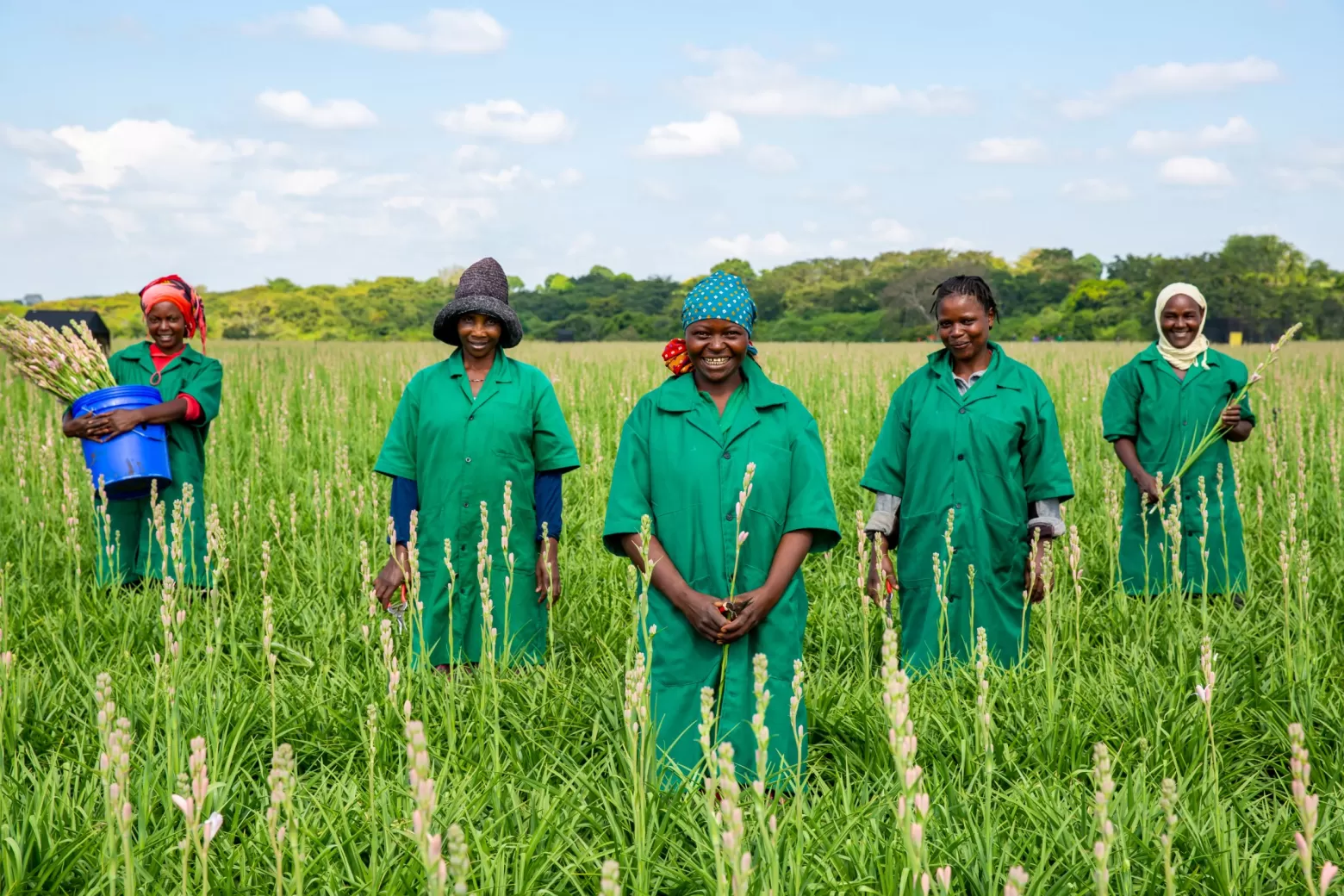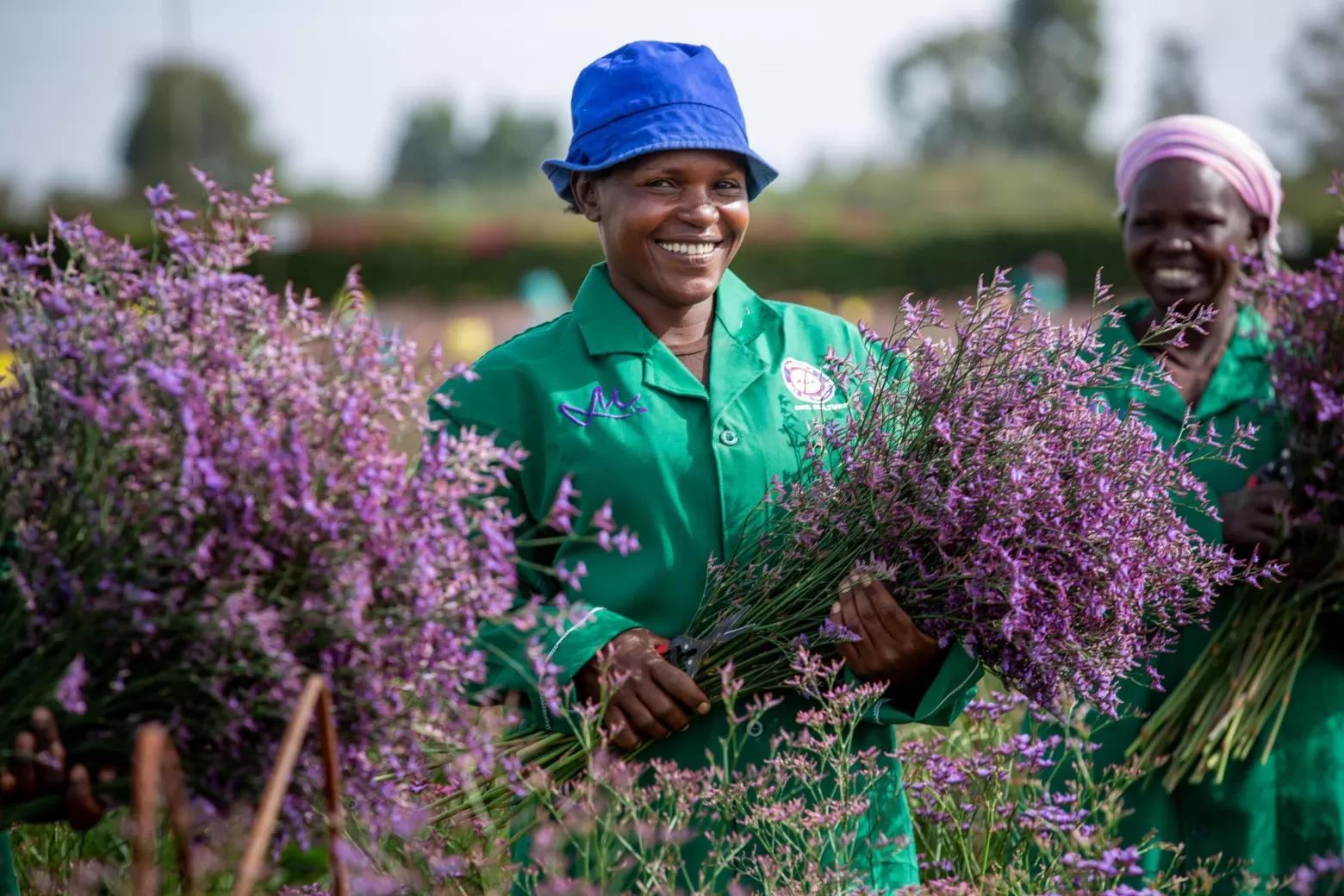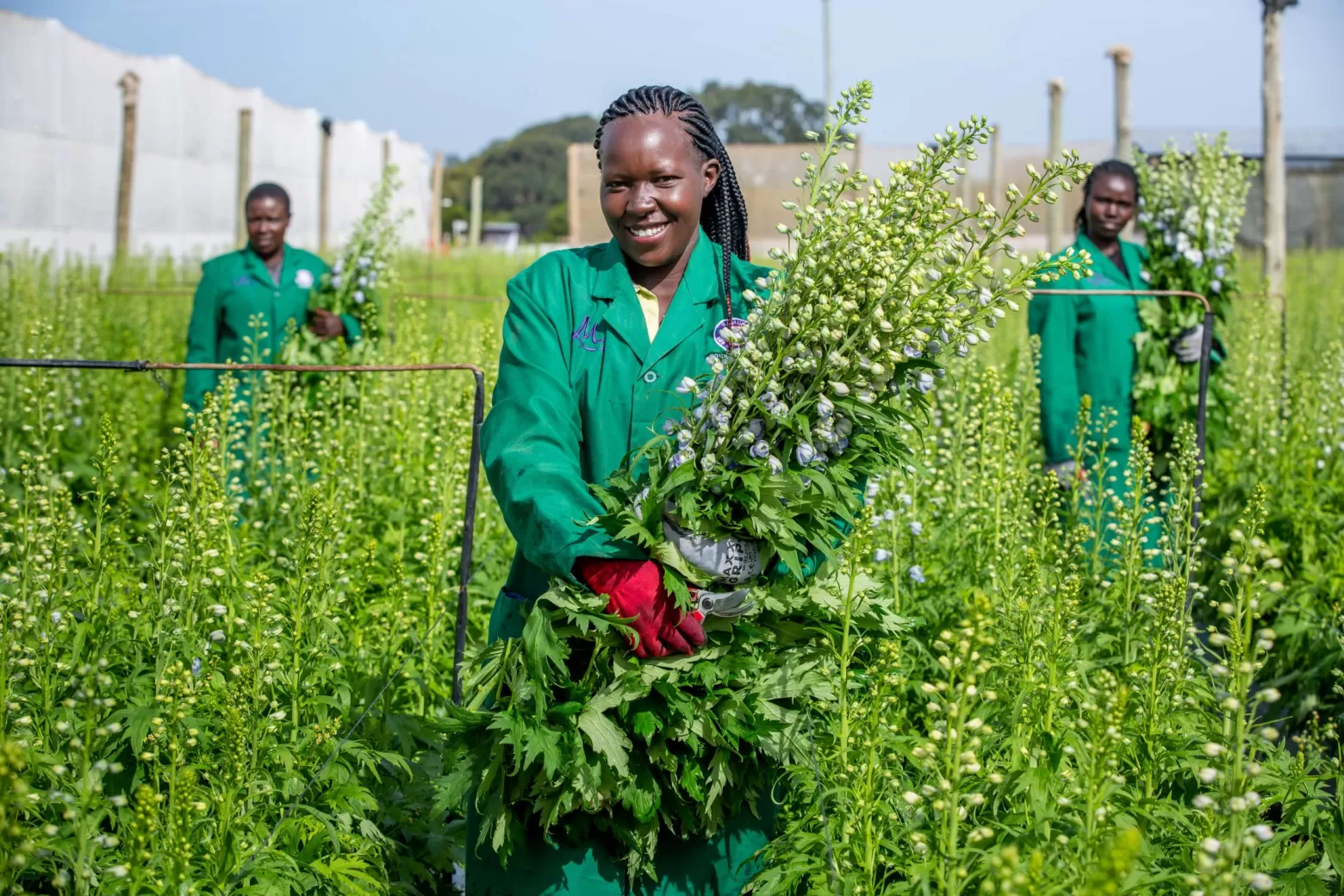
The Marginpar Culture
An insight into how our company culture aims at growing people that grow unique flowers.
Back to storiese fully realise it is the people who make Marginpar successful. That is why we say: ‘we grow our people, our people grow flowers’. If we can provide our people with what they need to grow, meaning: skills, knowledge, a safe and supporting work environment and guidance, we see strong development as an outcome. Both for the people and the teams they work in, and for the company itself.
Unifying our people into effective teams
Great things are never achieved by just one person; they are always achieved by teams of people that aim for collective goals and jointly share ownership on how to get there. This collaboration takes thoughtful guidance that is given through ‘servant leadership’; a leadership style by which one balances the two qualities of direction and service to support teams to perform. Another vital skill we train our people to apply is that of creating collective focus; connecting all individual ideas and opinions into one shared vision on how to work on something as a team. Second to this we strive to communicate in an appreciative way to enable introvert and extravert personalities to provide input equally. This way we try to bring together the diversity of personalities, their ideas and viewpoints and to forge them into a collective voice. Richard (Kiki) Fernandes, CEO of the Marginpar Group, explains: ‘Look, most people come to do a good day of honest work. Servant Leadership, appreciative communication, are ways to show respect for the contribution people bring. This is so important because it leads to unlocking the hidden potential that lies within each and every one of us. Thanks to this attitude people can grow.”

Improving every step of the process
Underneath these leadership and interaction skills we laid a foundation of Kaizen (Japanese for ‘Change for Better’) over the past 10 years. With ‘Hamuka’, as we call Kaizen, we standardised our work processes. This has made a big impact on our organisation and is now fully embedded in the way of life of many of our employees. Hamuka provides clarity and uniformity to the work processes and encourages people to engage their ideas to continuously improve these processes. Kiki: ‘This means we involve our people to understand the process flow from start to end and to learn how to talk with data. And we empower the teams to not only carry out the right process every time, but to also continuously look at how they can improve them. The starting point is to roll out each step of the process in the right way, to have a checklist for each phase, from beginning to end. These teams drive continuous improvement and by doing so improve the end result. They understand every detail of every step in the process and see best what needs to be improved.’

It changed the way we work
The implementation of Hamuka changed the way we work. We saw people becoming happier and more confident in their work. Their ideas are appreciated, they take more responsibility. For example, one innovation thought up by value adder Teresa was extra support for the Hypericum crops. She devised a new support system, tested it with her team and saw the rejection rate drop significantly. The improvement to the support system is now used on all farms. And what happened to Teresa? She moved on to a new position and is now Assistant Production Manager. Kiki: ‘A lot of our staff, or value adders as we call them, have grown thanks to this way of working. They started as non-skilled workers, and are now our managers. Take Miriam for example. She started as a junior manager and is now managing our Thika farm. The same goes for Hamuka Coordinator, Adan. Although he couldn’t go to high school, he has grown from a security guard into his role and has become an excellent coordinator.’

The multiplier effect
Consequently, we have a very low staff turnover of less than 2%. Showing respect, friendliness and solidarity in which everyone’s input is valued is largely contributing to this. No idea is a bad idea, and we encourage our people to climb the corporate ladder. From flower harvester to farm manager: if you unlock people’s potential, great things are possible. This effect has not gone unnoticed, and even crosses international borders. Recently, Marginpar Ethiopia kicked off with Hamuka and soon our partner farms in Tanzania will follow suit. No doubt Servant Leadership and the interaction skills we are currently learning will follow. Kiki: ‘We are all about creating a better place for people in the world we live in. The beauty of it is that our Marginpar culture has a ripple effect in everyone’s families, it acts as a multiplier. Everyone took the philosophy home and taught their children the good practices. The effect is huge because up to six (and in some cases even more) people benefit from, or are supported by, a single person at work.’

